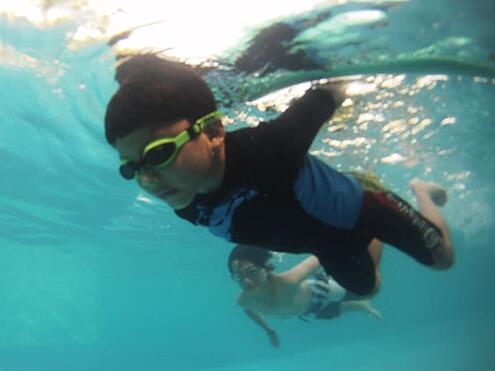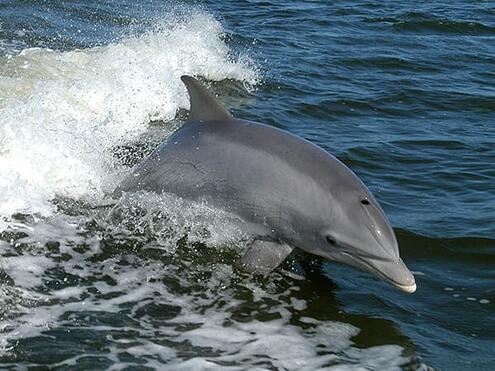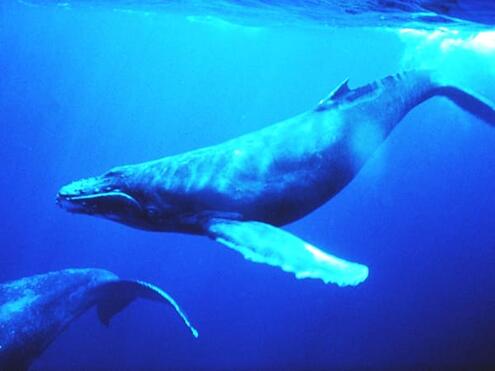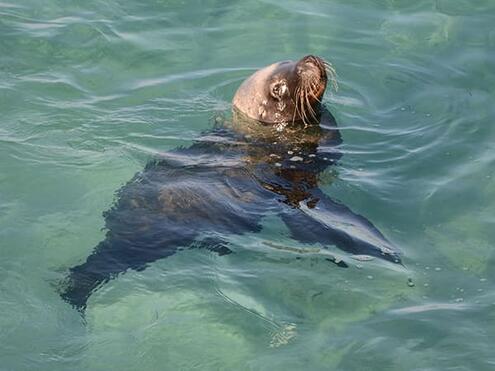
All mammals—whether on land or in the sea—have adaptations to help them survive in cold water.
One adaptation is known as the mammalian diving reflex (or MDR). When exposed to cold water , all mammals' bodies respond in a similar way. The heart rate slows, and the blood vessels in the arms, hands, legs, and feet constrict, or tighten. These changes help the body conserve oxygen, and make sure that the brain, heart and other vital organs get the most blood flow.
The MDR happens in all mammals, from sea lions to your dog to YOU. Marine mammals stay underwater for long periods of time and have additional adaptations to help them do this. For example, animals such as whales and seals can handle more carbon dioxide in their blood than land mammals can.

Human

Dolphin

Whale

Sea lion




 Biodiversity
Biodiversity
 Brain
Brain
 Genetics
Genetics
 Marine BiOLogy
Marine BiOLogy
 MicrobiOLogy
MicrobiOLogy
 PaleontOLogy
PaleontOLogy
 ZoOLogy
ZoOLogy
 AnthropOLogy
AnthropOLogy
 ArchaeOLogy
ArchaeOLogy
 Astronomy
Astronomy
 Climate Change
Climate Change
 Earth
Earth
 Physics
Physics
 Water
Water


